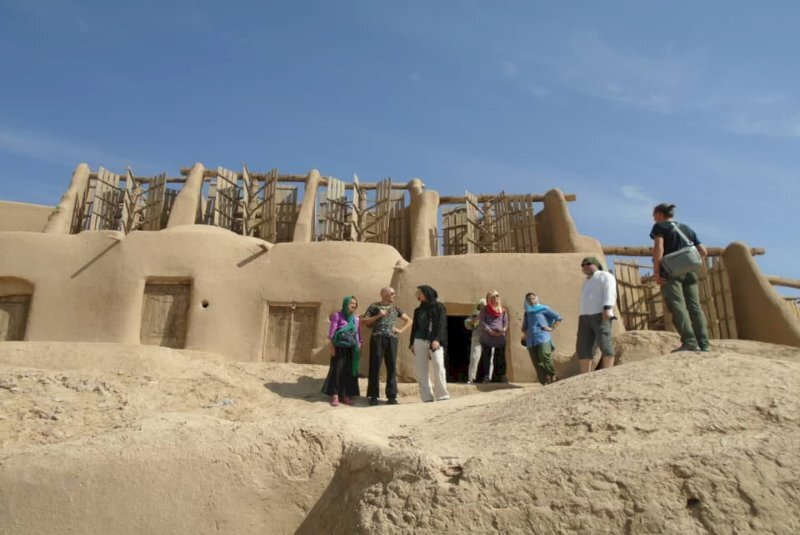Khaf, home to ancient windmills, is emerging destination for intl. travelers

TEHRAN—The ancient city of Khaf, which is home to numerous ancient windmills, is seen as an emerging destination for international sightseers.
“It was the 11th package tour of foreign sightseers in the current (Iranian) year that recently brought visitors to Khaf,” a local official said on Sunday.
“38 Travelers from Germany, the Netherlands, Switzerland, Japan, Poland, New Zealand, and Australia visited Khaf in the current year,” the official said.
Many of the travelers have said the type of historical attractions, and the warm and hospitable behavior of the people of Khaf attracted their attention, the official added.
Constructed of clay, wood, and straw, those ancient gears which are inherited from preceding generations are perched on a cliff overlooking the village, milling grain for centuries. Technically speaking, unlike European windmills, the Persian design is powered by blades arrayed on a vertical axis in which the energy of the wind is translated down without the need for any of the intermediary gears found on the horizontal axis windmills.
Experts believe such primitive yet great machines bear testimony to the human being’s adaption to nature by transforming environmental obstacles into opportunities.
The development of Asbads took place due to strong and continuous 120-day winds, which annually sweep through the east and southeast of the Iranian Plateau from late May to late September. According to the Encyclopedia Britannica, the earliest known references to windmills are to a Persian millwright in 644 CE, and windmills in Seistan [Sistan], Iran, in 915 CE. In the early second millennium, some Eastern and Western states acquired the technology of making mills from Persia, though the prototype design constantly underwent amendments over time.
Iran seeks UNESCO recognition for arrays of its ancient windmills that can be found in the provinces of Sistan-Baluchestan, South Khorasan, and Khorasan Razavi. In 2002, the windmills were recognized as a national heritage site by Iran.
AM
